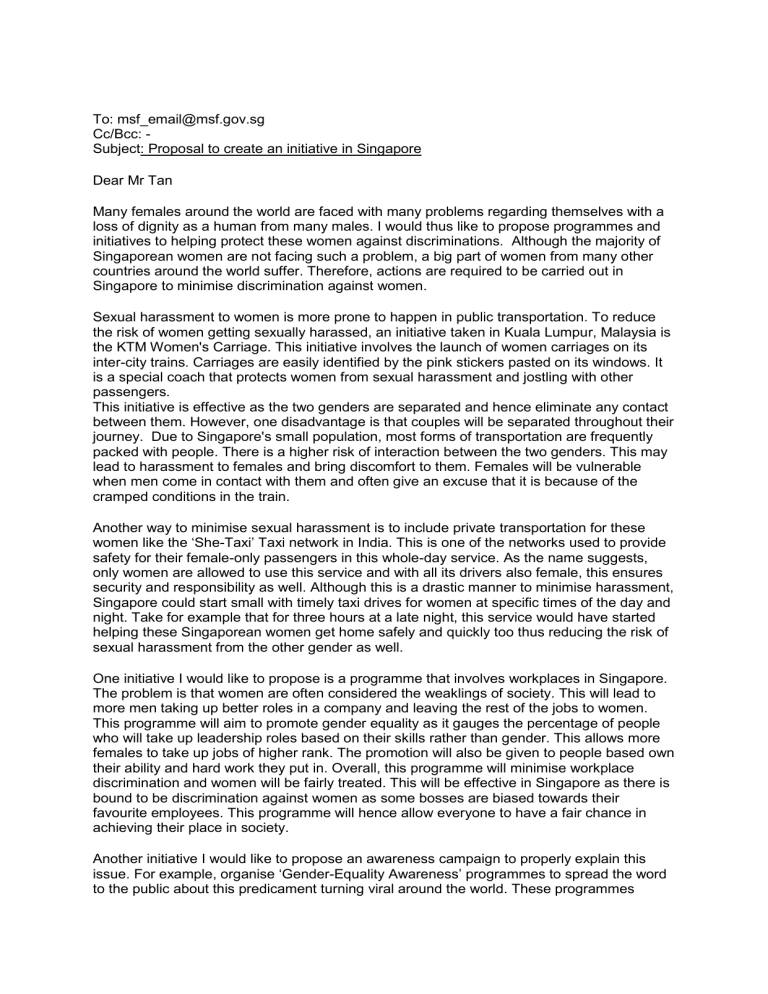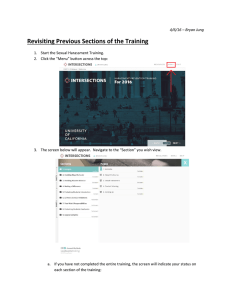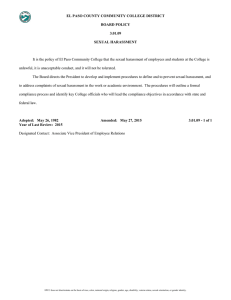
To: msf_email@msf.gov.sg Cc/Bcc: Subject: Proposal to create an initiative in Singapore Dear Mr Tan Many females around the world are faced with many problems regarding themselves with a loss of dignity as a human from many males. I would thus like to propose programmes and initiatives to helping protect these women against discriminations. Although the majority of Singaporean women are not facing such a problem, a big part of women from many other countries around the world suffer. Therefore, actions are required to be carried out in Singapore to minimise discrimination against women. Sexual harassment to women is more prone to happen in public transportation. To reduce the risk of women getting sexually harassed, an initiative taken in Kuala Lumpur, Malaysia is the KTM Women's Carriage. This initiative involves the launch of women carriages on its inter-city trains. Carriages are easily identified by the pink stickers pasted on its windows. It is a special coach that protects women from sexual harassment and jostling with other passengers. This initiative is effective as the two genders are separated and hence eliminate any contact between them. However, one disadvantage is that couples will be separated throughout their journey. Due to Singapore's small population, most forms of transportation are frequently packed with people. There is a higher risk of interaction between the two genders. This may lead to harassment to females and bring discomfort to them. Females will be vulnerable when men come in contact with them and often give an excuse that it is because of the cramped conditions in the train. Another way to minimise sexual harassment is to include private transportation for these women like the ‘She-Taxi’ Taxi network in India. This is one of the networks used to provide safety for their female-only passengers in this whole-day service. As the name suggests, only women are allowed to use this service and with all its drivers also female, this ensures security and responsibility as well. Although this is a drastic manner to minimise harassment, Singapore could start small with timely taxi drives for women at specific times of the day and night. Take for example that for three hours at a late night, this service would have started helping these Singaporean women get home safely and quickly too thus reducing the risk of sexual harassment from the other gender as well. One initiative I would like to propose is a programme that involves workplaces in Singapore. The problem is that women are often considered the weaklings of society. This will lead to more men taking up better roles in a company and leaving the rest of the jobs to women. This programme will aim to promote gender equality as it gauges the percentage of people who will take up leadership roles based on their skills rather than gender. This allows more females to take up jobs of higher rank. The promotion will also be given to people based own their ability and hard work they put in. Overall, this programme will minimise workplace discrimination and women will be fairly treated. This will be effective in Singapore as there is bound to be discrimination against women as some bosses are biased towards their favourite employees. This programme will hence allow everyone to have a fair chance in achieving their place in society. Another initiative I would like to propose an awareness campaign to properly explain this issue. For example, organise ‘Gender-Equality Awareness’ programmes to spread the word to the public about this predicament turning viral around the world. These programmes would promise facts and information to help both genders get a better understanding regarding this issue and hopefully gives them the warning about such dangers such as how the laws would view this issue. These programmes can be held at shopping centres, and at many gathering spots like the neighbourhoods’ multi-purpose halls with the help of supporting groups and even schools thus helping the entire community get this understood in the broad light. Overall, the visually increasing numbers of women in many countries such as India have left me speechless. An action in Singapore needs to take place to prevent such numbers from ever reaching such a staggering number other countries’ records have. I hope, that with your help and understanding of this issue, you will provide the information and programmes I have proposed into action. Thank you for taking the time to read this e-mail and hopefully, you would consider this proposal in the near future. Yours Sincerely, Shirlyn Tay Xue Ning




